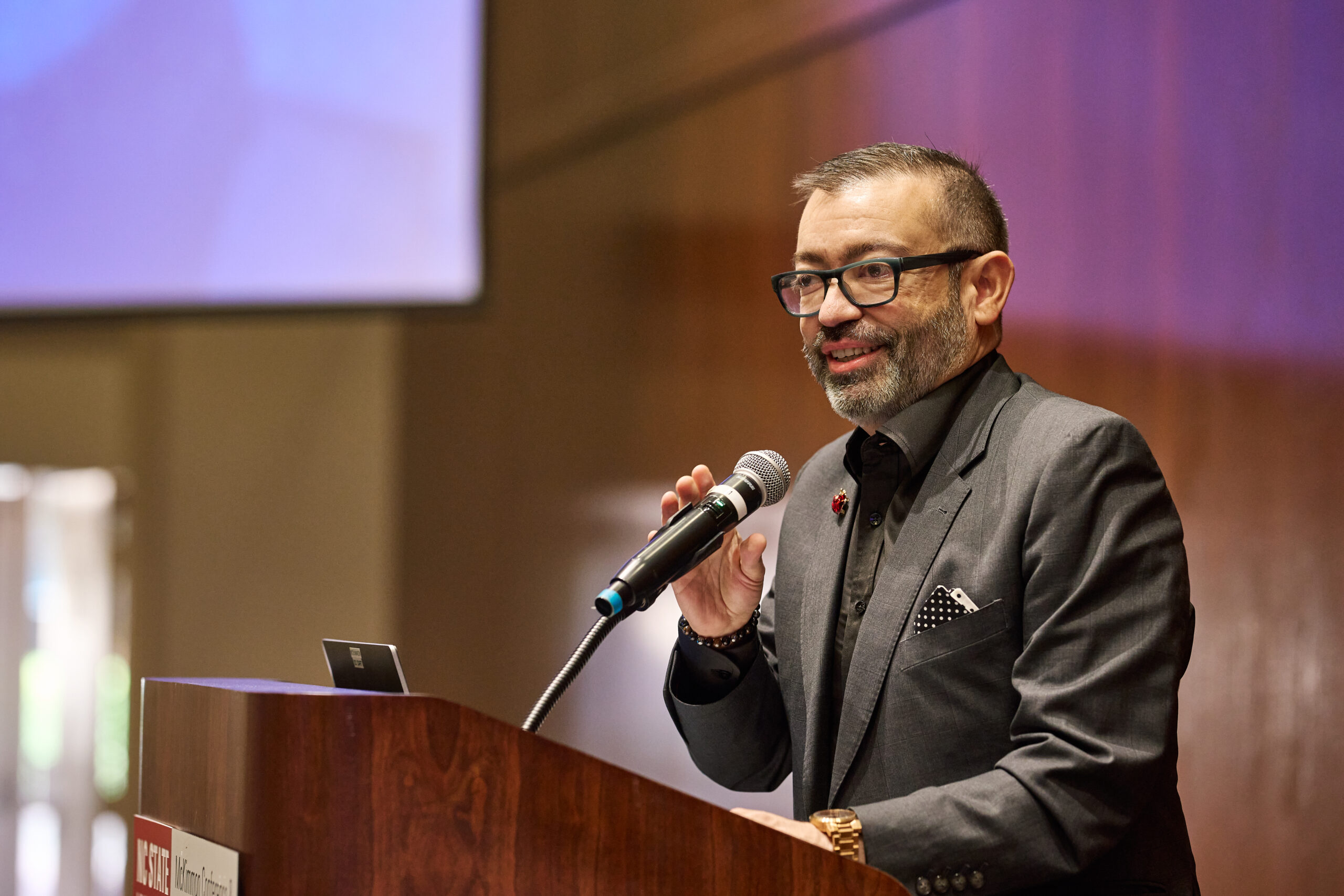

by Kaitlin Phillips, MS
photos by Matthew Ramey
When Robert Espinoza, MPA, woke up in a Brooklyn hospital in 2016, the last thing he remembered was taking a cab home from the gym. As he later learned, he'd been in a medically induced coma for a week after falling on the sidewalk and being rushed to surgery by two EMTs who happened to be having coffee across the street when it happened. His heart stopped for 45 minutes and was restarted six times.
Weeks later Espinoza, who is now the CEO of the National Skills Coalition, was recovering at home when a home care assessor visited. When the assessor saw that Espinoza could walk down the stairs to answer the door, he was disqualified from home health services. There were too many other patients on the caregiver's roster who couldn't even get out of bed. Espinoza ended up with complications that led to $1.5 million in medical care for that year. And at the time, he was Executive Vice President of Policy at PHI.
"Despite all my relationships, despite everything I knew, my social and political capital if you will, none of that protected me in that moment. It haunted me - what was it about our system that made care so inaccessible?"

Espinoza shared his story on November 21, 2024, at the NCIOM Annual Meeting. This year's meeting, Long-Term Services and Supports: Policy Solutions for a Changing Landscape, highlighted the need for innovative, forward-thinking policy solutions as our state rapidly ages. Family caregivers, health care and human services providers, policymakers, and researchers gathered at the McKimmon Center in Raleigh to examine the need for innovative, forward-thinking policy solutions for our rapidly changing state.
According to Espinoza, the median wage for direct care workers is $16 per hour, which is a driving factor in poverty among caregivers and the turnover in the sector. About 37% of direct care workers live in or near poverty. Many are members of the “sandwich generation,” meaning they are supporting both their parents and their children. Many need supportive services like child care and transportation.
On top of this, said Espinoza, a lot of training requirements for direct care work are outdated, failing to reflect today’s acute clientele or populations with limited English or financial literacy.
Espinoza recommended a "shared prosperity model," suggesting a national or state-level compensation strategy for this sector that acknowledges all of the complex factors.
These sentiments were shared by many speakers and presenters throughout the day. Key takeaways from the conference included:
After Espinoza's keynote, the NCIOM annual meeting agenda proceeded with a plenary panel on sustainability of long-term services and supports followed by breakout sessions, including a private session for state legislators about investing in LTSS. Susan Mims, MD, MPH, FAAP, President & CEO of the Dogwood Health Trust, and representatives of the WNC Bridge Foundation, provided a lunchtime presentation about the Hurricane Helene impact and response in Western North Carolina.
To close the day, Jill Simmerman Lawrence, MPH, Deputy Director, Division of Aging and Mary Bethel, MEd, Chair, NC Coalition on Aging's Board of Directors provided an overview of NC's Multisector Plan for Aging: All Ages, All Stages. This plan draws in part on the work of the NCIOM Task Force on Healthy Aging.
Meeting Sponsors:
• North Carolina Health Care Facilities Association
• Carolina Complete Health
• Health Management Associates
• WellCare